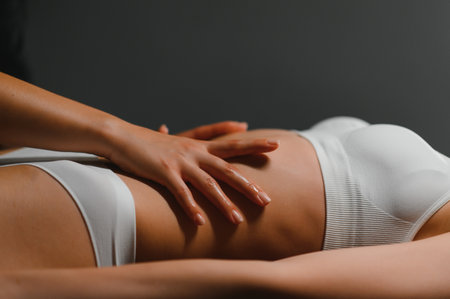Introduction to Cryolipolysis in the UK
Cryolipolysis, commonly referred to as “fat freezing,” has rapidly emerged as a popular non-invasive cosmetic procedure across the United Kingdom. Rooted in cutting-edge technology, cryolipolysis leverages controlled cooling to target and eliminate stubborn fat cells without damaging surrounding tissue. The method is increasingly viewed as an accessible alternative to more invasive treatments such as liposuction, appealing to those who seek visible results with minimal downtime. Within the UK, regulatory oversight is provided by organisations such as the Care Quality Commission (CQC) and the Medicines and Healthcare products Regulatory Agency (MHRA), ensuring clinics meet stringent safety and efficacy standards. As consumer interest in personal aesthetics continues to rise—bolstered by social media trends and a growing focus on self-care—cryolipolysis has carved out a significant niche in the British beauty landscape. This surge in demand reflects not only technological advancements but also shifting attitudes towards body image, with more individuals seeking balanced approaches that prioritise both appearance and wellbeing.
2. The Body Positivity Movement and Shifting UK Beauty Standards
In recent years, the body positivity movement has gained significant traction across the United Kingdom, fundamentally altering societal attitudes towards beauty, self-image, and wellbeing. British media outlets—from high street fashion magazines to prime-time television—have begun to feature a broader spectrum of body types, skin tones, and personal narratives. This shift actively challenges the long-standing preference for slimness and homogeneity that has historically defined British beauty ideals.
The conversation around aesthetics is now more inclusive than ever, promoting acceptance and respect for all bodies regardless of size or shape. Social media campaigns like #BodyPositivityUK and high-profile advocates have played pivotal roles in empowering individuals to embrace their natural forms. While this cultural transformation encourages self-love and diversity, it also raises complex questions about the place of cosmetic interventions such as cryolipolysis within an evolving social landscape.
Media Representation: Then vs Now
| Era | Typical Beauty Standard | Media Representation |
|---|---|---|
| Early 2000s | Thin, Eurocentric features | Mainstream models, limited diversity |
| 2020s | Diverse body shapes and ethnicities | Inclusive casting, real stories, focus on wellbeing |
The Influence on Wellbeing Choices
This evolution in beauty standards intersects directly with the aesthetics industry in the UK. On one hand, there is growing criticism against procedures perceived as perpetuating unrealistic ideals; on the other hand, many Britons view non-invasive treatments like cryolipolysis as tools for enhancing confidence without resorting to surgery. The ongoing dialogue reflects a uniquely British balancing act: upholding individual autonomy while fostering a culture of acceptance.
Cultural Implications for Cryolipolysis Providers
Aesthetics professionals in the UK must navigate this nuanced environment by aligning their services with values of empowerment rather than conformity. Transparent client consultations, ethical marketing strategies, and clear communication about realistic outcomes are increasingly important as clients seek choices that resonate with both their aesthetic goals and their commitment to body positivity.
![]()
3. Reconciling Aesthetic Trends with Wellbeing
Within the UK, the dynamic interplay between evolving aesthetic ideals and holistic wellbeing is increasingly under scrutiny. As cryolipolysis and similar cosmetic treatments gain traction, individuals are prompted to reassess how they approach personal appearance in relation to self-esteem and mental health. The British public often finds itself at the crossroads of embracing modern beauty innovations while upholding a cultural shift towards body positivity and self-acceptance.
Negotiating Personal Appearance
For many in the UK, decisions around appearance are shaped by a complex web of influences, ranging from media portrayals of ideal bodies to localised attitudes towards self-care. Cryolipolysis presents itself as a non-invasive option for those seeking subtle enhancements without extensive downtime, appealing particularly to those who value discretion and practicality—a hallmark of British sensibilities. However, there is an increasing awareness that such procedures should support, rather than undermine, an authentic sense of self-worth.
The Impact on Self-Esteem
Engagement with cosmetic treatments like cryolipolysis can have dual outcomes. On one hand, achieving desired physical changes may bolster confidence and foster a sense of agency over one’s body image. On the other, there is a risk that reliance on external interventions could perpetuate unrealistic standards or exacerbate insecurities if not approached mindfully. In the UK context, where open discussions about mental health are becoming more mainstream, there is a growing emphasis on ensuring that aesthetic choices align with individual values and psychological wellbeing.
Mental Health Considerations
Practitioners and clients alike are increasingly recognising the importance of mental health in the decision-making process for cosmetic treatments. Clinics across the UK now often incorporate pre-treatment consultations focusing on motivations and expectations, helping individuals reflect on whether their pursuit of aesthetic change is rooted in personal fulfilment or societal pressure. This approach reflects a broader trend within British culture—valuing emotional resilience alongside physical transformation—and underscores the necessity of integrating professional guidance with personal introspection when navigating the aesthetics landscape.
4. Public Perceptions and Ethical Considerations
The intersection of cryolipolysis and body positivity within the UK context is shaped by evolving public perceptions and a spectrum of ethical considerations. While non-invasive body contouring treatments such as cryolipolysis are gaining traction across the UK, societal attitudes remain varied, reflecting broader debates around aesthetics, wellbeing, and self-acceptance. On one hand, there is an increasing acceptance of diverse body types driven by movements advocating for inclusivity and mental health awareness. On the other hand, commercial promotion of aesthetic procedures can sometimes reinforce narrow beauty standards, potentially undermining efforts to foster genuine body positivity.
Societal Attitudes Towards Cryolipolysis
Public opinion in the UK regarding cryolipolysis is nuanced. Some individuals view these treatments as empowering tools that support personal choice and body autonomy, allowing people to address areas of concern without surgery. However, others critique the growing normalisation of cosmetic interventions, arguing that they may perpetuate unrealistic expectations or contribute to social pressures surrounding appearance. The NHS and various advocacy groups often stress the importance of informed decision-making and realistic outcomes when considering aesthetic procedures.
Overview of Public Perceptions
| Perspective | Description |
|---|---|
| Empowerment & Choice | Supports individual agency; sees cryolipolysis as a means to enhance confidence without surgery. |
| Body Positivity Concerns | Worries about reinforcing narrow beauty ideals and undermining self-acceptance messaging. |
| Medical Skepticism | Cautions about safety, efficacy, and psychological impact; calls for regulation and transparency. |
Ethical Debates Surrounding Promotion
The ethical landscape in the UK is shaped by questions over how treatments like cryolipolysis are advertised and discussed both in media and clinical settings. There is ongoing debate about whether promotional messages adequately balance benefits against potential risks and whether they respect the principles of informed consent. Regulatory bodies such as the Advertising Standards Authority (ASA) have guidelines to ensure advertising does not mislead or exploit vulnerable individuals—especially younger demographics susceptible to appearance-related pressures.
Key Ethical Considerations:
- Transparency in marketing claims regarding effectiveness and safety.
- The responsibility of clinics to provide comprehensive consultations addressing mental as well as physical health implications.
- Avoiding language or imagery that could exacerbate insecurities or promote unattainable ideals.
Ultimately, navigating the interplay between cryolipolysis and body positivity in the UK requires ongoing dialogue among healthcare professionals, regulatory bodies, advocacy groups, and the wider public. Ensuring that aesthetic trends do not overshadow holistic wellbeing remains a crucial part of this conversation.
5. Looking Forward: The Future of Aesthetics and Body Positivity in the UK
As we look to the future, the aesthetics landscape in the UK is set for significant transformation, driven by shifting societal attitudes, technological advancements such as cryolipolysis, and a growing emphasis on holistic wellbeing.
Forecasted Trends in Aesthetic Treatments
Emerging trends suggest that non-invasive procedures like cryolipolysis will continue to gain traction, particularly as British consumers increasingly seek subtle enhancements over dramatic alterations. The demand for treatments that offer minimal downtime and natural-looking results aligns with the broader cultural movement towards authenticity and self-acceptance.
Evolving Attitudes Towards Beauty
The conversation around body image is evolving rapidly in the UK. There is greater awareness of the psychological impacts of traditional beauty standards, leading to a more inclusive definition of attractiveness. The body positivity movement continues to gather momentum, encouraging individuals to embrace diverse body types while also acknowledging personal choice in pursuing aesthetic procedures without stigma.
The Role of Holistic Wellbeing
The integration of physical, mental, and emotional wellbeing is becoming central to how Britons approach beauty and aesthetics. Clinics are increasingly adopting a holistic framework—offering services that support not just physical transformation but also confidence-building and mental health. Cryolipolysis providers are likely to expand their role, providing aftercare that includes lifestyle advice, nutritional guidance, and psychological support.
In summary, the future of aesthetics in the UK will be defined by a balance between technological innovation and a compassionate, individual-centric approach. As attitudes shift and new treatments emerge, holistic wellbeing will become the cornerstone of both personal satisfaction and industry best practice—ensuring that beauty enhancement goes hand-in-hand with empowerment and genuine self-care.


